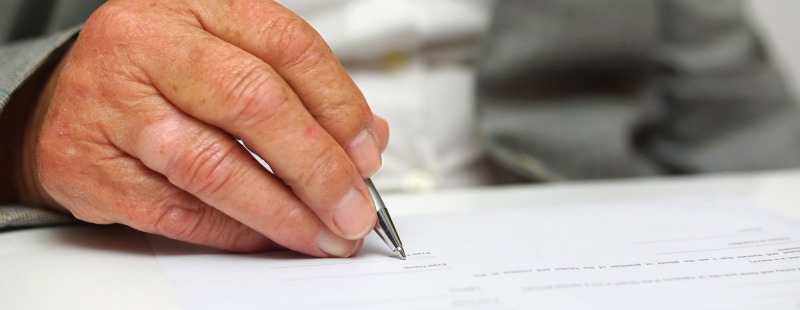Thursday 15th June marks the eleventh World Elder Abuse Awareness Day (WEAAD). WEAAD is an occasion set up by the United Nations when countries throughout the world demonstrate their opposition to elder abuse and highlight ways in which people can self-protect themselves. The event is coordinated in the UK by the National charity Action on Elder Abuse.
Action on Elder Abuse says that the awareness day is about creating a greater recognition of the mistreatment of the elderly throughout the world, and to highlight the need for action to prevent this. As in previous years, Clapham & Collinge will be supporting WEAAD with the hope that increased awareness will result in positive action to help end Elder Abuse.
What Is Abuse?
Under English law we have no legal definition of “elder abuse”. According to Age UK abuse is when “someone we expect to trust causes us harm or distress.” Abuse can take many different forms: financial, emotional, physical and sexual. Abuse can also be the result of intentional or unintentional neglect. It includes abuse that takes place in hospitals, day centres, a care home or nursing home, and even in the victim’s own home. Examples of abuse and neglect can include:
- stealing or pressurising someone to hand over money
- making decisions without consulting the person involved
- treating someone in a way that makes them feel threatened, belittled or embarrassed
- touching someone in a way they don’t want to be touched
- physically hurting someone
- neglecting someone’s needs
- If an elderly person is being cared for, abuse can include not giving them enough food, not keeping them warm, refusing to take them to the doctor when they’re ill, or stopping them from seeing friends and family
Why is it Happening More Now?
Although awareness surrounding Elder Abuse has increased in recent years the reported number of older people who are subjected to such abuse has risen year on year. Action on Elder Abuse have recently reported that over 500,000 older people are victims of abuse each year. In 2015 it was reported that nearly £25 million in cash and property was reported stolen from vulnerable elderly people in 2013 alone. This included elderly people being pressured into giving away their homes and cash or assets being stolen or taken without the owner’s knowledge. Most worrying with an elderly population is that over 78% of abuse occurs after the age of 70 and that women are two thirds more likely than men to become victims.
One of the key reasons behind the raise in Elder Abuse is likely to be the growing aging population and increase in life expectancies. Research conducted for Dementia UK in 2013, shows there were 815,827 people with dementia in the UK, 773,502 of these people with dementia were aged 65 years or over. In 2015, it was reported that there were 856,700 people with dementia in the UK. If current trends continue and no action is taken, the number of people with dementia in the UK is forecast to increase to 1,142,677 by 2025 and 2,092,945 by 2051, an increase of 40% over the next 12 years and of 156% over the next 38 years.
One way of ensuring that a loved one is safeguarded is by having a Lasting Power of Attorney (LPA) in place. An Lasting Power of Attorney (LPA) allows an individual to appoint people (known as their attorneys) to act on their behalf in the event that they are unable to act for themselves. Lasting Powers of Attorney (LPAs) have to be drafted in a prescribed form and executed in accordance with the legal provisions. However, moves to make Lasting Powers of Attorney (LPAs) available online, and the increase in DIY Wills, has arguably simplified the process for those wishing to abuse such documents.
What to Look For?
Abuse is not always simple to identity and it often goes undiscovered for many years. Common features which point to the possibility of abuse include changes in a person’s character, isolation, a sudden decision to gift money to non-family members, reluctance to leave the person alone with professionals, someone speaking for them and pressure from third parties to complete transactions.
How Do Solicitors Help?
It is often the case that abuse goes undiscovered until after the victim dies. However, prior to death, Solicitors are trained to be vigilant to the issue of Elder Abuse and to spot any early warning signs that a vulnerable person is being subjected to abuse. Solicitors can also aid abuse victims or their relatives to liaise with the relative authorities. Should it be needed, Solicitors can obtain an injunction to keep a suspected person away form a vulnerable individual.
If abuse is discovered following the victim’s death Solicitors can assist with gathering evidence of the abuse, organising an expert medical opinion on whether the deceased lacked mental capacity to make financial decisions and, ultimately, blocking a grant of probate from being issued.
At Clapham & Collinge we take safeguarding seriously and are committed to doing what we can to reduce the risk posed by elder abuse. We are members of Solicitors for the Elderly and Lin Whitehead, a Partner at the firm, is one of only 71 Panel Deputies in England, approved by the Office of the Public Guardian to act for vulnerable people.
If you have any concerns regarding abuse you may be suffering or on someone else’s behalf these can be raised with Norfolk Police, Norfolk Safeguarding Adults Board, the Office of the Public Guardian or Action on Elder Abuse Charity.
For more information on Lasting Powers of Attorney or to discuss your individual requirements in further detail, our dedicated Lasting Power of Attorney Solicitors are on hand to help, contact us today on 01603 693500 or email us using ‘Make an enquiry’ form. Appointments available at our Norwich, North Walsham, and Sheringham offices.
